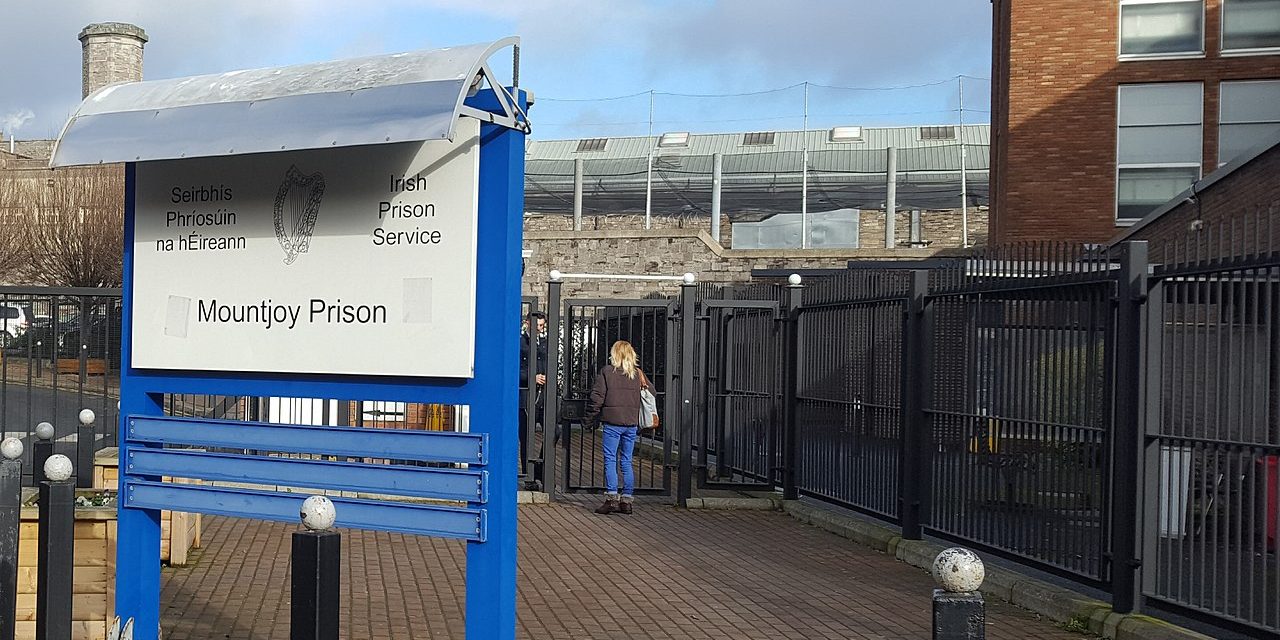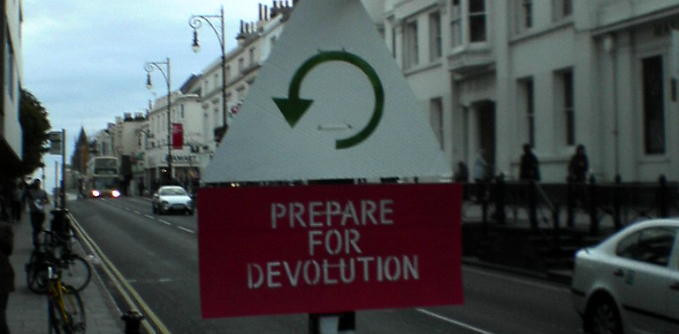Extradition between the UK and Ireland after Brexit will be particularly affected by a No-Deal Brexit. In this post, Paul Arnell (Robert Gordon University) and Gemma Davies (Northumbria University) bring a closer understanding of the problems on the horizon and ways of mitigating them.
The UK’s departure from the EU means the loss of the European Arrest Warrant (EAW) for the UK. This will have a negative impact on the ability of the UK to extradite wanted persons from all its former EU partners. It was hoped that the UK and EU would reach a deal on criminal justice and security cooperation which would provide for a system of extradition which would closely mirror the terms of the EAW. With less than 50 days until the transition period ends that is looking increasingly unlikely. The consequences of falling back on the European Convention on Extradition 1957 (ECE) are particularly acute for the UK and Ireland.
After the creation of the Irish Free State and the establishment of the Common Travel Area extradition between the UK and Ireland was facilitated through the backing of a warrants system. Whilst this worked well between Great Britain and Ireland this was not the case between the Republic and Northern Ireland. Having its origins in Irish case law, that system of extradition broke down from 1928 to 1965 during which time there were no practically applicable arrangements between the two. New legislative provisions in 1965 formalised extradition, but the arrangement remained a hybrid which incorporated aspects of orthodox international extradition agreements and the previously applicable backing of warrants system.
In 1973 both the UK and Ireland joined what was then the European Community. Whilst integration in the field of police and criminal justice matters was originally a challenge, it was eventually recognised that it must follow as a corollary of free movement. In this vein, the Framework Decision on the European Arrest Warrant was adopted in 2002. Both Ireland and the UK have been part of the EAW since its inception and amended their law in accordance with it. The EAW facilitates a simplified procedure enabling surrender decisions to be made by judicial authorities on the basis of mutual recognition. The benefits of the system are heightened in the Ireland-UK historical and political context. They include the absence of a political offence exception and orthodox double criminality requirement. The EAW contains limited grounds for refusal, and forbids a bar on the extradition of nationals. It has created an effective and efficient process which plays a crucial role in Ireland-UK criminal justice cooperation today.
UK participation in the EAW is not possible after 31 December 2020. However, both the UK and EU have proposed a replacement which closely mirrors the agreement between the EU and Norway/Iceland, which in turn is similar to the EAW. A mutually agreeable deal on extradition is within touching distance, but a few key issues remain. The UK is seeking a proportionality test for incoming requests and a test of trial readiness. Both are tests that the UK has brought into domestic law to deal with concerns about the operation of the EAW. The EU is demanding that the ECJ should have sole jurisdiction to interpret provisions or concepts of Union law. The UK wants no role for the ECJ and instead suggests a political resolution of disputes via a joint committee. These issues are not insurmountable. However, time is now very short. Surrender is merely one part of a proposed comprehensive agreement between the EU and the UK. There are a considerable number of obstacles still standing in the way of the conclusion of an agreement.

In the event of an agreement between the EU and UK not being concluded and ratified by 31 December 2020 the UK and Ireland will fall back on the ECE. This is clearly sub-optimal. The ECE operates through diplomatic channels and therefore extradition entails political approval in the extraditing country. Unlike the EAW, there are no strict time limits and states are not required to extradite their own nationals. Further, under the ECE there are no agreed exceptions to the dual criminality requirement and several safeguards for requested persons in part 1 of the Extradition Act 2003 would no longer be available. An important point affecting the efficiency of a future extradition process is the loss of the Schengen Information System II. Whilst distinct from the EAW, it operates alongside it by providing real-time warrants and alerts. Its loss means Interpol Red Notices using diplomatic channels will be relied upon. Most EU countries have ceased using Interpol inter se. Overall, the ECE is out-dated and little-used amongst the Member States. This may lead to UK warrants not being dealt with as a priority and UK prosecution authorities having to rely on informal in-country relationships to a greater extent.
A possible solution to the loss of the EAW in the event of a No Deal is a bilateral Ireland-UK extradition treaty. There is precedent for bilateral agreements on extradition which can closely mirror, or in fact surpass, the EAW in terms of efficiency. Five Nordic countries (not all of which are EU members) have a regional system of extradition termed the ‘Nordic Arrest Warrant’ (NAW). The NAW mirrors a number of aspects of the EAW and mutual recognition is made explicit. The notable differences are that there are even lower minimum penalties and double criminality is completely abolished under the NAW. Further, procedural time limits are shorter than those within the EAW. It is, therefore, possible for Ireland and the UK to conclude a bilateral extradition agreement with terms that provide for even closer cooperation than the EAW. The drivers for a regional Nordic system of extradition are equally present between the UK and Ireland. Nordic countries have a closely connected history, similarities in their legal systems and languages and removed their borders long before the advent of Schengen.
Lessons must be learnt from Ireland-UK extradition history. The EAW depoliticised extradition in the Irish-UK context and whilst there is political will on both sides for this to continue, falling back on the 1957 Convention forces extradition back into the political space. In the absence of a multilateral agreement, the optimal solution for Ireland and the UK is a bilateral extradition arrangement. Whilst Brexit changes the status of UK citizens, who no longer enjoy EU citizenship, it importantly does not change the fundamental tenet of the Good Friday Agreement. Citizens of Northern Ireland and the Republic of Ireland are to be treated equally, they can choose Irish citizenship, British citizenship, or both. They are free to choose where to live, work and study. The Common Travel Area subsists. The shared history of the UK and Ireland, particularly in relation to their citizens living on the island of Ireland, lends strong justification to a continued close extradition relationship.
This article gives the views of the authors, and not the position of LSE Brexit, nor of the London School of Economics. Image by Cograng, (CC BY-SA 4.0).







In a way I think the question of extradition is not so important, provided countries have similar legal codes and are on fairly good terms. For example I am a British citizen living in Germany who has, for obvious reasons, acquired German citizenship. If I were to visit the UK and rob a bank and then succeed in returning to Germany, my understanding is that, because of Brexit, and because I am a German citizen, I could not be extradited against my will back to the UK. However that wouldn’t do me much good, because the German government doesn’t happen to approve of bank robbery. What would happen I think is that the UK and German government would cooperate in trying me for bank robbery in Germany, flying in witnesses as necessary, and I would spend a large portion of my subsequent life in a German prison. Brexit would not have prevented me being punished, though it would have put both both governments to considerable trouble flying in witnesses (with, no doubt, masses and masses of additional paperwork).
UK chose to sever its links. Doesn’t want to have anything with ECJ. There might be a new extradition treaty. It might be struck down by ECJ if it doesn’t save fundamental rights of EU citizens, without speaking of the 27 highest national courts. The overall judiciary chosen as arbiter shall comply with all legal EU requirements.
Funny to have that debate when UK extradites its citizens to USA but can’t get simple reciprocity.
Great article and on-point but a pity it has come to this. The authors were very discreet in mentioning the, once, extraordinarily difficult extradition arrangement that existed between Ireland and the UK and how politicised the process became, particularly here in Ireland where terrorists were able to hide behind a political claim to shelter from extradition to NI for terrorist acts committed there. I don’t think we’re going back to those days but we still have significant OCGs operating on a cross-border basis (with rump-paramilitary influences) that both the PSNI and the Garda Siochána have to deal with on an ongoing basis. From diesel laundering to ATM smash-n-grabs the criminal fraternity operates on an all-island basis. It will be a sad day if the border once again comes to block law enforcement and facilitate such illegality. This should be compulsory reading for the negotiating teams.
Quelle surprise, no mention in the article of any inconvenient facts about abuses of the European Arrest Warrant.
An article by Ben Kelly in ‘ Protect human rights: don’t replicate the European Arrest Warrant’ (July issue of reaction.life) cites the case of Alexander Adamescu, a Romanian born German citizen, a former owner of a Romanian newspaper and critic of the authoritarian Romanian government. Adamescu has lived in London since 2012 and was arrested in 2016 by the Metropolitan police under an EAW issued by the Romanian government. He is currently appealing against the UK court’s decision ‘to extradite him to a corrupt state where his human rights cannot be guaranteed.’
‘The EAW is based on the false assumption that all criminal justice systems in the EU are equal and uphold similar levels of equity between the citizen and the state. This is underpinned by the delusion that the European Convention on Human Rights is earnestly adhered to by all requesting states. Even the most crazed, passionate, flag-wearing Europhile surely can’t believe that.
Not all justice systems in Europe are equal. Some do not operate separately from the state and some are blatantly corrupt. When it comes to human rights violations in detention conditions and upholding due process, there are EU member states that rank little better than Russia or Turkey. When we surrender people to countries with appalling records on human rights, Britain is complicit.
Of the 4,803 people the UK surrendered to other EU countries, more than half were extradited to Poland (2,499). The next greatest number of people extradited was to Lithuania (480), Romania (358), and Latvia (225). Are we confident in the criminal justice systems of these countries?
Romania is by far the worst violator of human rights in the EU and the right to fair trial and the prohibition of torture are regularly flouted. Poland has been found by the European Court of Human Rights to be in violation of the prohibition of torture or degrading treatment. Greece is a serial human rights violator. The Hungarian government fails to respect the rule of law and human rights as it falls into dictatorship, how can we be reassured that suspects will get a fair trial and humane prison conditions?’
https://reaction.life/protect-human-rights-dont-replicate-the-european-arrest-warrant/